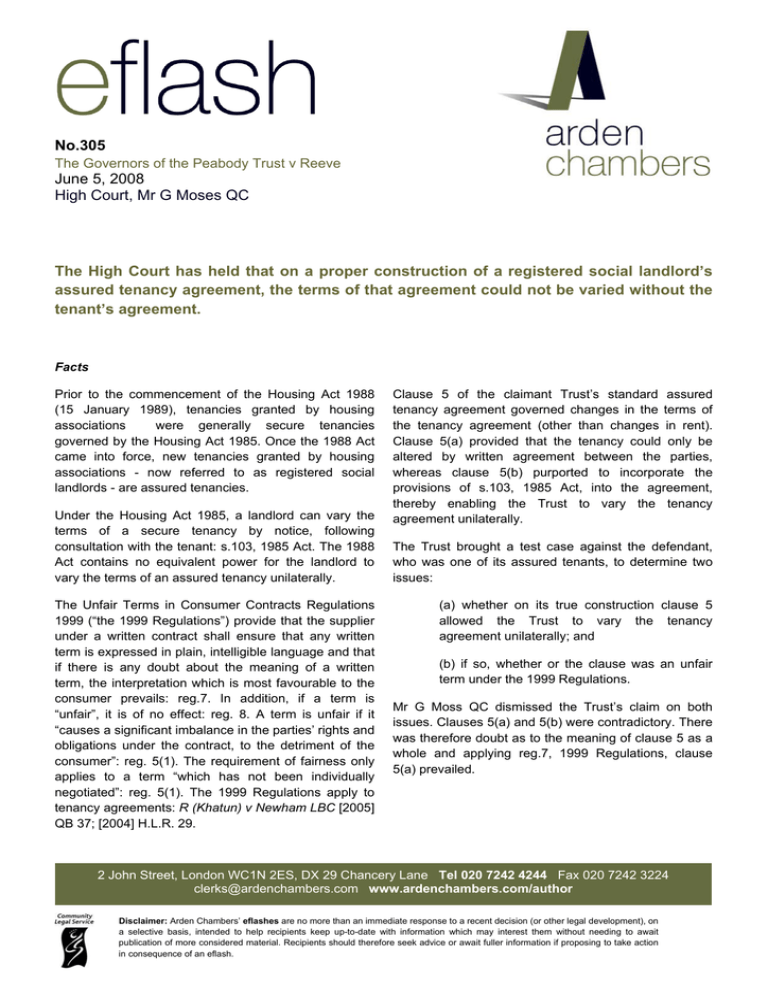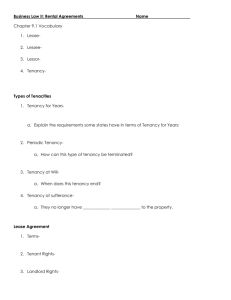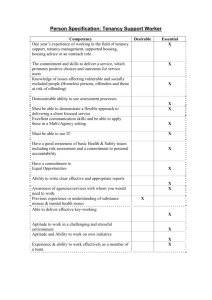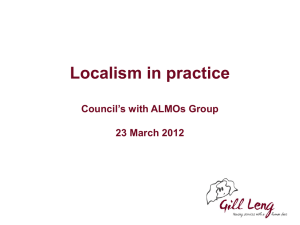No.305 June 5, 2008 High Court, Mr G Moses QC The High Court
advertisement

No.305 The Governors of the Peabody Trust v Reeve June 5, 2008 High Court, Mr G Moses QC The High Court has held that on a proper construction of a registered social landlord’s assured tenancy agreement, the terms of that agreement could not be varied without the tenant’s agreement. Facts Prior to the commencement of the Housing Act 1988 (15 January 1989), tenancies granted by housing associations were generally secure tenancies governed by the Housing Act 1985. Once the 1988 Act came into force, new tenancies granted by housing associations - now referred to as registered social landlords - are assured tenancies. Under the Housing Act 1985, a landlord can vary the terms of a secure tenancy by notice, following consultation with the tenant: s.103, 1985 Act. The 1988 Act contains no equivalent power for the landlord to vary the terms of an assured tenancy unilaterally. The Unfair Terms in Consumer Contracts Regulations 1999 (“the 1999 Regulations”) provide that the supplier under a written contract shall ensure that any written term is expressed in plain, intelligible language and that if there is any doubt about the meaning of a written term, the interpretation which is most favourable to the consumer prevails: reg.7. In addition, if a term is “unfair”, it is of no effect: reg. 8. A term is unfair if it “causes a significant imbalance in the parties’ rights and obligations under the contract, to the detriment of the consumer”: reg. 5(1). The requirement of fairness only applies to a term “which has not been individually negotiated”: reg. 5(1). The 1999 Regulations apply to tenancy agreements: R (Khatun) v Newham LBC [2005] QB 37; [2004] H.L.R. 29. Clause 5 of the claimant Trust’s standard assured tenancy agreement governed changes in the terms of the tenancy agreement (other than changes in rent). Clause 5(a) provided that the tenancy could only be altered by written agreement between the parties, whereas clause 5(b) purported to incorporate the provisions of s.103, 1985 Act, into the agreement, thereby enabling the Trust to vary the tenancy agreement unilaterally. The Trust brought a test case against the defendant, who was one of its assured tenants, to determine two issues: (a) whether on its true construction clause 5 allowed the Trust to vary the tenancy agreement unilaterally; and (b) if so, whether or the clause was an unfair term under the 1999 Regulations. Mr G Moss QC dismissed the Trust’s claim on both issues. Clauses 5(a) and 5(b) were contradictory. There was therefore doubt as to the meaning of clause 5 as a whole and applying reg.7, 1999 Regulations, clause 5(a) prevailed. 2 John Street, London WC1N 2ES, DX 29 Chancery Lane Tel 020 7242 4244 Fax 020 7242 3224 clerks@ardenchambers.com www.ardenchambers.com/author Disclaimer: Arden Chambers’ eflashes are no more than an immediate response to a recent decision (or other legal development), on a selective basis, intended to help recipients keep up-to-date with information which may interest them without needing to await publication of more considered material. Recipients should therefore seek advice or await fuller information if proposing to take action in consequence of an eflash. No.305 Continued He went on to consider whether clause 5(b) would have constituted an unfair term. He held the it was unfair as it was not individually negotiated and it gave rise to a significant imbalance in the parties’ rights and obligations arising under the contract, to the detriment of the tenant as consumer. 2 John Street, London WC1N 2ES, DX 29 Chancery Lane Tel 020 7242 4244 Fax 020 7242 3224 clerks@ardenchambers.com www.ardenchambers.com/author Disclaimer: Arden Chambers’ eflashes are no more than an immediate response to a recent decision (or other legal development), on a selective basis, intended to help recipients keep up-to-date with information which may interest them without needing to await publication of more considered material. Recipients should therefore seek advice or await fuller information if proposing to take action in consequence of an eflash.




